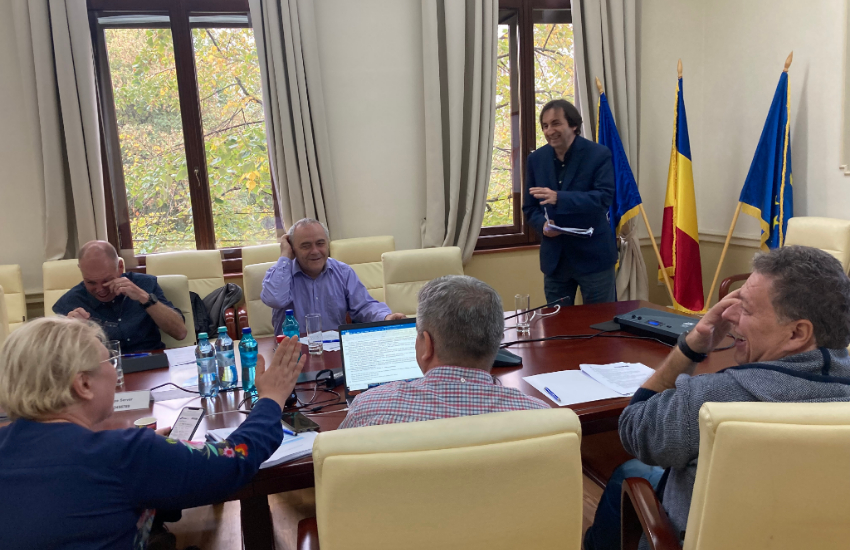On October 7, it was once again time for the annual meeting in Romania regarding the Blue Deal Economic Mechanism project. This year’s location was Timisoara, Romania. Following what was for some a long travel day, the workshop began on Tuesday, October 8, with a welcome speech by Liliana Michineci, the director of NARW, the Romanian water authority.

Progress in KPI dashboard
After reflecting on the Blue Deal work visit to Leiden, the Netherlands, which took place earlier in May this year, the first major topic on the agenda was addressed. This concerned the progress made by Romanian colleagues in developing a KPI dashboard. The aim of the dashboard is to help monitor their goals and achievements more effectively in the future. In collaboration with the World Bank, an initial concept for such a dashboard was created and presented for the first time in Timisoara, Romania. Although there is still much work to be done, the first step was well-received. The coming period will focus on identifying suitable KPIs and determining how data will be collected and provided. The project with the World Bank must be completed by March 1, 2025, and the topic will undoubtedly be revisited during the next Blue Deal work visit.
Tax collection
Although it was not formally on the agenda, the topic of tax collection was also discussed. Upon request, Philip Daelmans of the Dutch water authority Limburg gave a presentation about the imposition and collection of taxes through the tax collaboration system in which his water authority is involved. This topic piqued the interest of the Romanian colleagues, especially since the Romanian water authority NARW plans to introduce a solidarity contribution of €8 per household starting in 2025. This contribution is part of a proposed law based on World Bank recommendations. The aim is to raise an estimated €8 billion between 2025 and 2039, not only through the solidarity contribution but also by tapping into new revenue streams such as groundwater extraction fees and energy generation from water.
Key topics
2 key topics on the agenda for day 3 were communication/lobbying and treasury management. Starting with communication, it is crucial for NARW to bring its partners on board with the World Bank’s recommendations. Earlier this year, a meeting was organised with key stakeholders, including ministries and energy companies, and the Romanian colleagues provided an update on this in Timisoara. They drew inspiration for organising such meetings from the ‘storytelling’ workshop given by Marcel de Ruijter earlier this year in Leiden. Regarding treasury management, Philip Daelmans gave a presentation on how it is handled at the Dutch water authority Limburg.
Asset management
The main focus of the final day of the workshop was the use of risk and asset management within NARW. To make significant progress on these topics, work is being done with a software tool that NARW had previously employed. The goal is to use risk analysis to identify the most significant risks related to NARW’s assets, allowing prioritisation of actions and allocation of maintenance budgets accordingly. To date, 50,000 assets have been mapped and integrated into the software tool.
In addition to the above-mentioned topics, the workshop was, as always, enriched with presentations and excursions that provided participants with greater insight into the hosting water authority and its management area. All in all, the work visit was a resounding success on every level.
